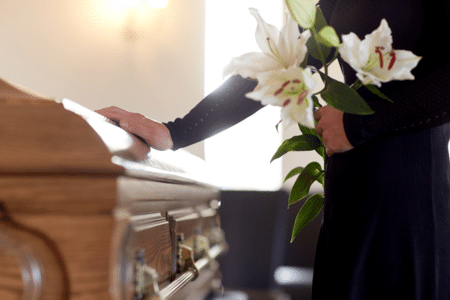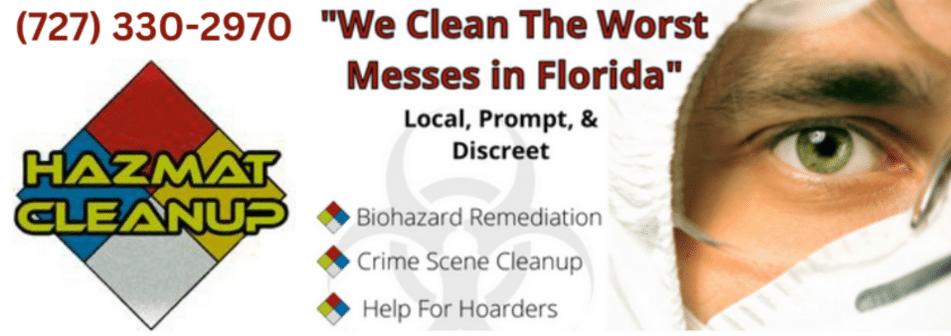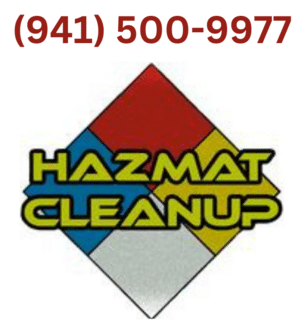
hazmat cleanup, LLC: Death & Unattended Death Cleaning Services in sarasota county florida
Death cleaning, also known as “Swedish Death Cleaning,” is the process of decluttering and organizing your belongings before you pass away. This can help ease the burden on your loved ones and make the grieving process easier for them. However, sometimes death can be sudden and unexpected, leaving behind a scene that requires professional cleaning services.
Unattended death cleanup is a specialized service that Hazmat Cleanup, LLC offers to clients who have discovered the remains of a loved one who has been deceased for an extended period of time. This type of cleanup requires specialized training and equipment to handle the potential hazards associated with human decomposition. The team at Hazmat Cleanup, LLC is trained to handle these situations with compassion and professionalism, providing a thorough cleanup while respecting the privacy and dignity of the deceased.
Human decomposition can release harmful bacteria and viruses into the air, making it essential to hire a professional cleaning company like Hazmat Cleanup, LLC to handle the cleanup process. The team uses specialized equipment and cleaning agents to ensure that all traces of decomposition are removed from the scene, leaving it safe and sanitary for future use.
In addition to death cleaning and unattended death cleanup services, Hazmat Cleanup, LLC also offers other specialized cleaning services including crime scene cleanup, hoarding cleanup, and biohazard cleanup. The team is available 24/7 to respond to emergency situations and provide prompt and efficient cleaning services.
Overall, Hazmat Cleanup, LLC is a professional and compassionate cleaning company that provides essential services to those dealing with the aftermath of a loved one’s death. Their specialized services in death cleaning, unattended death cleanup, and human decomposition make them a trusted choice for families in Sarasota County, FL.
Dangerous Pathogens & diseases potentially in blood or bodily fluids
The aftermath of a death can be a difficult and emotional experience, especially when it comes to cleaning up the scene. However, coming into contact with blood or breathing the air around someone who has been dead for a long period of time can be dangerous and potentially life-threatening. Without proper personal protective equipment (PPE), individuals can be exposed to a variety of diseases and pathogens that can cause serious health problems.
One of the primary dangers of coming into contact with blood or breathing the air around someone who has been dead for a long period of time is exposure to bloodborne pathogens. Bloodborne pathogens are microorganisms that can cause disease when they are present in blood or other bodily fluids. These pathogens can be transmitted through contact with infected blood or other bodily fluids, which can occur during the cleanup process.
In addition to bloodborne pathogens, individuals who come into contact with blood or breathe the air around a decomposing body can also be exposed to harmful bacteria and viruses. As a body decomposes, it releases gases and fluids that can contain harmful bacteria and viruses. These gases and fluids can contaminate the air and surfaces around the body, increasing the risk of infection.
Some of the diseases and pathogens that individuals can be exposed to include:
- HIV: HIV is a virus that attacks the immune system and can lead to AIDS. It is transmitted through contact with infected blood or bodily fluids.
- Hepatitis B and C: Hepatitis C and B are viruses that can cause liver damage and other serious health problems. They are transmitted through contact with infected blood or bodily fluids.
- Tuberculosis: Tuberculosis is a bacterial infection that primarily affects the lungs, but can also affect other parts of the body. It is transmitted through the air when an infected person coughs or sneezes.
- Methicillin-resistant Staphylococcus aureus (MRSA): MRSA is a type of bacteria that is resistant to many antibiotics. It can cause skin infections, pneumonia, and other serious health problems.
To protect against these dangers, it is important to wear proper PPE when cleaning up after a death. This includes gloves, masks, goggles, and other protective gear. It is also important to properly dispose of any contaminated materials, including clothing and cleaning supplies.
In addition to wearing PPE, it is recommended to hire a professional cleaning company that specializes in death cleanup services. These companies have the training and equipment necessary to safely and effectively clean up after a death, reducing the risk of exposure to harmful pathogens and bacteria.
Coming into contact with blood or breathing the air around someone who has been dead for a long period of time can be dangerous and potentially life-threatening. It is important to take proper precautions, including wearing PPE and hiring a professional cleaning company, to reduce the risk of exposure to harmful pathogens and bacteria.
Our death cleanup services are covered by homeowners insurance
Dealing with the aftermath of a death can be a difficult and emotional experience, especially when it comes to cleaning up the scene. However, many homeowners and renters insurance policies cover the cost of cleaning and remediation services in the event of a death. This can provide peace of mind and financial support during a difficult time.
In Sarasota County, FL, many insurance policies cover the cost of cleaning and remediation services following a death. These services can include death cleanup, unattended death cleanup, and biohazard cleanup. Depending on the policy, insurance may cover some or all of the costs associated with these services.
It is important to review your insurance policy to understand what is covered and what is not covered in the event of a death. Some policies may have exclusions or limitations on coverage, so it is important to understand these limitations before an incident occurs.
When working with a cleaning and remediation company, it is important to communicate with them about your insurance coverage. Many companies will work directly with insurance providers to ensure that the cost of their services is covered. This can help reduce the financial burden on the homeowner or renter.
In addition to insurance coverage, some cleaning and remediation companies offer financing options for their services. This can be helpful for those who may not have insurance coverage or whose coverage does not fully cover the cost of the services.
It is important to note that insurance coverage for cleaning and remediation services may not cover all aspects of the cleanup process. For example, some policies may not cover the cost of replacing furniture or other personal belongings that were contaminated during the incident. It is important to review your policy and work with your insurance provider to understand what is covered and what is not covered.
Many insurance policies in Sarasota County, FL cover the cost of cleaning and remediation services in the event of a death. It is important to review your policy and understand what is covered and what is not covered. Working with a professional cleaning and remediation company can help ensure that the cleanup process is handled safely and effectively, reducing the risk of exposure to harmful pathogens and bacteria.


